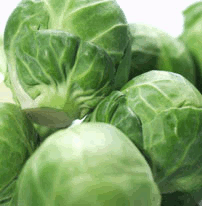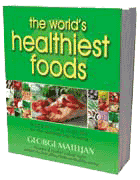Elevated Cholesterol 4: What foods should I consume sparingly or avoid to promote healthy cholesterol levels?
AVOID:
| Saturated fats and cholesterol | Red meat and other animal products | Strong association with atherosclerosis and heart disease |
| Trans-fatty acids (hydrogenated fats) | Margarine, coffee creamers, many processed foods | Increase LDL cholesterol and lipoprotein(a) levels |
Saturated Fat and Cholesterol
Excessive dietary intake of foods rich in saturated fat and cholesterol, which are found primarily in meat, particularly red meat, and other animal products, is strongly associated with increased risk of atherosclerosis and heart disease.
Iron
High levels of stored iron are associated with increased free radical production and therefore increased risk of heart attack, especially in individuals with high cholesterol levels.
Hemochromatosis, a condition of iron overload, is common in Caucasian males.
Iron is a transitional metal that can catalyze the formation of free radicals called hydroxyl radicals, which can damage cholesterol and have been linked to cardiovascular disease. Recent studies suggest that the heme-iron from red meat is more likely to produce hydroxyl radicals than the heme-iron in chicken, fish or vegetarian sources of protein (e.g., beans, nuts and seeds, eggs, and low fat dairy products). Using these sources of protein as your dietary staples and limiting red meat consumption is therefore recommended.
Trans-Fatty Acids (Hydrogenated Fats)
Trans fats are so-called since their chemical structure is the mirror opposite of that found in vegetable oils. These abnormally structured fats can be made from vegetable oils by subjecting them to a chemical process that transforms them into solid fats. Also called hydrogenated fats, trans fats increase LDL cholesterol and lipoprotein(a) levels, may be more damaging to the heart and blood vessels than saturated fat, and should be eliminated from the diet. These unnatural fats are virtually absent from whole foods, but are the predominant component in margarine and are frequently added to processed foods, baked goods, coffee creamers, and snack foods.
Vitamin D
Although necessary for bone strength, excessive amounts of vitamin D are associated with plaque build-up, especially in those with low magnesium intake. Increase magnesium intake rather than avoid vitamin D-rich foods such as salmon, tuna, liver, eggs and milk; these foods provide numerous important health benefits. Excellent sources of magnesium include Swiss chard and summer squash. Very good sources include spinach, turnip greens mustard greens, pumpkin seeds, broccoli, , flax seeds, green beans, collard greens, kale, sunflower seeds, sesame seeds, quinoa, buckwheat, salmon, and black beans.
For more information on cholesterol see:
- Elevated Cholesterol 1 - If I have high cholesterol levels, can a healthy way of eating help me lower them into a normal range?
- Elevated Cholesterol 2 - What is high cholesterol and what levels of LDL and HDL are considered healthy?
- Elevated Cholesterol 3 - What foods and nutrients are good for healthy cholesterol levels?
- Elevated Cholesterol 5 - Recent research studies confirm the importance of eating healthy foods on healthy cholesterol levels






